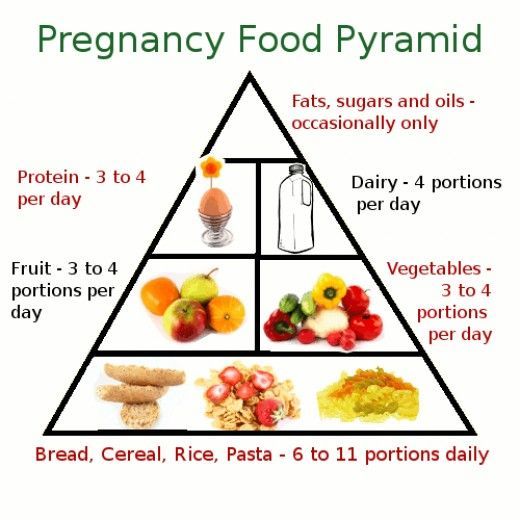Australian Dietary Guidelines For Pregnancy

Australian Dietary Guidelines For Pregnancy
What You Should Know About Nutrition During Pregnancy
When a woman is pregnant, it's important to make sure that she's getting all of the nutrients her body needs. A healthy diet during pregnancy can help ensure that both the mother and the baby are healthy. The Australian Dietary Guidelines recommend that pregnant women should get a balanced diet of foods from the five core food groups: fruit, vegetables, grains, dairy and protein.
It's also important to make sure that pregnant women are getting enough vitamins and minerals, especially folic acid, iron and calcium. Folic acid helps prevent birth defects of the brain and spine, and iron helps prevent anemia. Calcium helps ensure strong bones and teeth and helps to lower the risk of preterm birth.
What Foods to Eat During Pregnancy
The Australian Dietary Guidelines recommend that pregnant women should focus on getting a variety of foods from the five core food groups. This includes a variety of fruits and vegetables, whole grains, low-fat dairy and lean proteins. Whole grains provide essential nutrients such as fiber, vitamins and minerals. Low-fat dairy products such as milk and yogurt provide calcium and protein. Lean proteins like lean meat, fish, tofu, eggs and legumes are also important.
It is also important to focus on eating foods that are low in saturated fat, added sugar and salt. Eating too much of these foods can lead to weight gain, which is not healthy for pregnant women. Eating a balanced diet is important for both the mother and the baby's health.
Foods to Avoid During Pregnancy
There are some foods that pregnant women should avoid or limit. These include foods that are high in mercury, such as certain types of fish, and foods that may contain bacteria such as unpasteurized cheese. Pregnant women should also avoid eating raw or undercooked meats, eggs, and shellfish. These foods may contain bacteria or parasites that can be harmful to the unborn baby.
It is also important to avoid drinking alcohol while pregnant. Alcohol can cause serious birth defects and other health problems for the baby. If a pregnant woman has any questions about what foods she should avoid, she should speak to her doctor for more information.
Getting Enough Nutrients
During pregnancy, it's important to make sure that you're getting enough of the essential vitamins and minerals. The Australian Dietary Guidelines recommend that pregnant women should take a daily prenatal vitamin supplement to make sure they're getting enough of these important nutrients.
Getting enough folate, iron, calcium and other vitamins and minerals is especially important for pregnant women. Folate helps prevent birth defects, and iron helps prevent anemia. Calcium helps ensure strong bones and teeth and helps to lower the risk of preterm birth.
Eating for Two
Eating for two doesn't mean eating twice as much food. The Australian Dietary Guidelines recommend that pregnant women should increase their calorie intake by only about 300 calories per day. This means that it's important to focus on eating nutrient-dense foods that are high in essential vitamins and minerals.
It is also important to drink plenty of water and other healthy fluids, such as milk and 100 percent juices. Staying hydrated is important for both the mother and the baby. It is also important to make sure that you are getting enough rest during pregnancy.
Conclusion
Eating a healthy diet during pregnancy is important for both the mother and the baby. The Australian Dietary Guidelines recommend that pregnant women should focus on getting a variety of foods from the five core food groups and should limit foods that are high in saturated fat, added sugar and salt. Pregnant women should also take a daily prenatal vitamin supplement to make sure they're getting enough of the essential vitamins and minerals.
It is also important to remember to drink plenty of water and get enough rest. If you have any questions about nutrition during pregnancy, it is best to speak to your doctor or a qualified health professional.
Nutrition advice during pregnancy | Australian Government Department of

Healthy Diet Guidelines Australia - Help Health
Nutrition During Pregnancy | Johns Hopkins Medicine

Nutrition during Pregnancy | FabMoms

Women's Health Info Site - Women's Health Education Program: A Great

Pregnancy diet advice: What to eat and avoid [Infographic]
![Australian Dietary Guidelines For Pregnancy Pregnancy diet advice: What to eat and avoid [Infographic]](https://www.smartparents.sg/sites/default/files/image_resources/image-8942064-6768ac671fe6f01c819fe7a336df3d18-pregnancy--mj-advertorial--pregnancy-diet-advice-what-to-eat-and-avoid--infographic--2.jpg)
#changetherules ANMF TAS Conference - Belinda Fettke - Keynote Speaker
Services | Motherbee

Pregnancy diet and nutrition essentials | Merrion Fetal Health Dublin 2
a06e1e83ebe85e53035a2a85302e78e7.jpg 612×792 pixels (With images
